In today’s fast-paced and career-focused world, the value of a liberal arts degree is often underestimated. Yet, this versatile and foundational education equips graduates with critical skills that align with the demands of modern workplaces. If you’re wondering whether a liberal arts degree could improve your employment prospects, the answer is a resounding yes. Below, we explore how a liberal arts degree can offer unique advantages in a competitive job market.
What Makes a Liberal Arts Degree Unique?
Liberal arts programs emphasize a broad and interdisciplinary education, blending subjects such as philosophy, history, theology, and education. Instead of narrowing students into rigid career paths, this type of degree cultivates a set of transferable skills that are invaluable in diverse industries and professions.
Some hallmarks of a liberal arts education include:
- Critical Thinking and Problem-Solving: Students learn to analyze complex issues, evaluate diverse perspectives, and propose well-grounded solutions.
- Effective Communication: Whether it’s written or verbal, liberal arts programs develop communication skills that are indispensable for teamwork, customer engagement, and leadership roles.
- Adaptability: With broad knowledge across multiple fields, graduates are better equipped to adapt to evolving industries and job roles.
- Ethics and Integrity: Many programs—particularly those rooted in institutions with strong traditions such as Catholic education—cultivate a sense of moral responsibility in decision-making.
The Career Advantages of a Liberal Arts Degree
Employers today are increasingly seeking candidates with skills that go beyond technical expertise. Modern workplaces prioritize emotional intelligence, adaptability, collaboration, and innovative thinking—qualities that liberal arts degrees are tailored to develop.
Here’s how a liberal arts degree can make you a valuable asset in the workforce:
1. Versatility Across Industries
Graduates with liberal arts degrees are not confined to one specific career path. Instead, they can excel in fields like education, marketing, management, human resources, public service, or even technology. Employers value candidates who can bring creativity and fresh perspectives into their organizations.
2. Real-World Problem Solving
Liberal arts students learn to approach challenges by considering historical, cultural, and ethical dimensions—not just technical solutions. This holistic problem-solving approach makes them effective decision-makers.
3. Person-Centered Growth
Universities offering liberal arts education—such as Catholic International University—emphasize nurturing the individual through both academic rigor and moral development. This approach ensures graduates are not only technically competent but also empathetic and ethical leaders.
Why Employers Favor Liberal Arts Graduates
A liberal arts education fosters qualities that help individuals thrive in team settings, adapt to changes rapidly, and navigate cultural diversity with ease. Employers know that these attributes improve workplace dynamics and contribute to long-term success.
Some specific reasons employers recognize the value of liberal arts graduates include:
- Strong Communication Skills: Clear writing, persuasive speaking, and the ability to articulate ideas are vital in most professions.
- Leadership Potential: Liberal arts graduates can inspire and guide others through collaboration and ethical leadership.
- Global Perspective: Students often engage with rich, multi-disciplinary content that prepares them to work in culturally diverse environments.
Liberal Arts and Career-Oriented Learning
A high-quality liberal arts program balances foundational knowledge with career-oriented learning opportunities. For example, at Catholic International University:
- Students can focus on fields like education, philosophy, and theology, while also gaining job-ready skills.
- Programs are designed to be flexible and accessible, offering options for online learning and accommodating varying schedules.
- Graduates receive both intellectual preparation and ethical frameworks to help them thrive in any workplace.
This blend of intellectual depth and career practicality prepares students to confidently meet the demands of the workforce without sacrificing personal growth or values.
Tips to Maximize Your Liberal Arts Degree
If you’re pursuing or have completed a liberal arts degree, here are some strategies to enhance its value in the job market:
- Highlight Transferable Skills: When building your resume or interviewing, emphasize skills like communication, teamwork, and problem-solving that are universally desirable to employers.
- Expand Your Skill Set: Pair your liberal arts degree with certifications or technical skills in areas like project management, data analysis, or digital marketing.
- Leverage Networking Opportunities: Utilize connections at your university, particularly if it has affiliations with global communities or professional networks.
- Demonstrate Continuous Learning: Stay relevant by updating your knowledge in emerging trends in the workforce, proving that your adaptability extends beyond academics.
Final Thoughts
By investing in a well-rounded degree program—like those offered at top institutions such as Catholic International University—you not only prepare yourself for a meaningful career but also for personal and professional growth. In an age where adaptability is key, a liberal arts degree can truly boost your job chances and your long-term success.
While some might equate career success solely with specialized technical degrees, liberal arts graduates bring undeniable strengths to the workplace. A liberal arts education isn’t just about learning; it’s about cultivating a lifelong ability to think critically, communicate effectively, and lead with integrity. These attributes are what modern employers value most.

